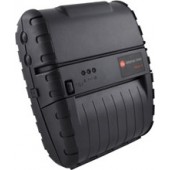Shopping Cart
0 item(s) - AED 0.00Datamax
Datamax-O'Neil is a manufacturer of barcode label printers, used mostly in industrial and commercial applications. Datamax was formed in 1977 and the main manufacturing plant is in Orlando, Florida, USA.
In 2005, Datamax was acquired by the Dover Corporation who own a number of technology based companies within the Auto-ID industry. Dover acquired O'Neil Product Development in 2006. Datamax and O'Neil merged into one company in 2009 and became Datamax-O'Neil.
The printers made by Datamax are either thermal printers or thermal transfer label printers, these printers are almost exclusively used for the production of barcode labels for products and packaging, within manufacturing plants and warehouse and logistics operations. Examples of these barcode labels are most likely to be on the outside of boxes and cartons, or attached to parcels delivered by carriers such as FedEx or UPS.
Datamax make a range of printers all based on the same technologies. Although basically of the same type the printers are grouped into classes which indicate the environment in which they are to be used.
- office or desktop
- healthcare, education or light industrial
- heavy industrial, manufacturing or shipping.
Standardisation of use has caused these printers to be manufactured in three widths, 4 inches, 6 inches and 8 inches wide. These widths are based on the most common label sizes used in product and shipping labels, although any label size, less than the maximum width, can be printed on each printer. i.e. a 3 inch label can be printed on a 4 inch printer, or two x 3 inch labels can be printed, side by side on a 6 inch printer, or a 7 inch label on an 8 inch printer. This allows for a very wide range of label to be produced from the basic 3 widths of printer. However the 4 inch wide printers are by far the most common size used worldwide, across all manufacturers of thermal printers. All datamax stationary printers use a proprietary pin-out on the serial ports.[1]
The versatility of the printing process also allows the whole image to be rotated, so that the label can be printed sideways or upside down (upside down labels are most commonly needed if they are to be used with an automatic label applicator). However barcodes printed sideways, sometimes referred to a "ladder" barcodes, are normally not printed as accurately, due to the way the print mechanism works.
Ex Tax: AED 2,750.00
.png)

